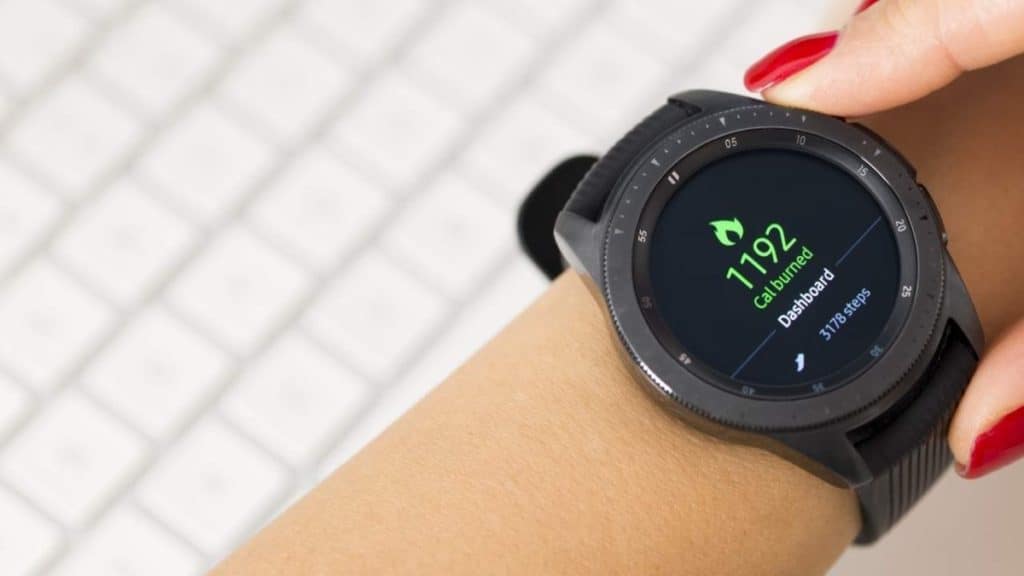
If you are new to running, you might want to know what an average time is for 3 miles so you can set some goals. How long it takes to run 3 miles is different for beginners and more advanced runners. Furthermore, your age, body weight and gender are all factors in your average 3 mile run time.
For a male, the average time to run 3 miles non-stop is 30 minutes, and for a female, the time is 35 minutes. A intermediate runner can expect a time of around 22 minutes and a professional runner can achieve a time of 18 minutes. The world record for 3 miles is 14 minutes 44 seconds.
These times are based on averages of people who have been running regularly for 6 months, so it’s a guide to improvement. It can take you weeks of running to get these times, especially if you can’t run non-stop at the beginning.
Table of Contents
Average Time To Run 3 Miles Male By Age

On average across all age groups its takes a male around 35 minutes to run 3 miles. That’s an average mile speed of 5.1mph. The average time it takes to run 3 miles depends on a few factors, such as age, weight, and how often you run.
A middle-aged person who runs regularly may be able to complete the 3 miles in under 40 minutes, whereas a younger person who is just starting to run may take over 45 minutes to complete the same distance.
The table below gives you an idea of the average times it take a male to run 3 miles for all age groups.
| Average Time to Run 3 Mile For Males | ||||||
| Age | Beginners | Intermediate | Advanced | |||
| 15-20 | 28:42 | 23:27 | 18:03 | |||
| 20-25 | 28:30 | 23:21 | 17:54 | |||
| 25-30 | 30:09 | 23:27 | 18:06 | |||
| 30-35 | 30:27 | 23:39 | 18:15 | |||
| 35-40 | 31:09 | 23:54 | 19:06 | |||
| 40-45 | 31:24 | 24:39 | 19:39 | |||
| 45-50 | 32:09 | 25:27 | 20:24 | |||
| 50-55 | 33:24 | 26:33 | 21:06 | |||
| 55-60 | 36:24 | 29:18 | 22:39 | |||
| 60-65 | 39:15 | 29:57 | 23:33 | |||
Check out my big running data analytics that contains every running distance by age and gender in a full comparison table for beginners and intermediates. You can compare your average running times against every distance in your age and ability group.
Average Time To Run 3 Miles Female By Age
On average across all age groups its takes a female around 38 minutes to run 3 miles. That’s an average mile speed of 4.7mph. The average time it takes to run 3 miles depends on a few factors, such as age, weight, and how often you run.
The table below gives you an idea of the average times it take a female to run 3 miles for all age groups.
| Average Time to Run 3 Mile For Females | ||||||
| Age | Beginners | Intermediate | Advanced | |||
| 15-20 | 34:27 | 27:09 | 21:24 | |||
| 20-25 | 35:00 | 26:54 | 21:09 | |||
| 25-30 | 35:06 | 27:09 | 21:27 | |||
| 30-35 | 36:27 | 27:27 | 21:42 | |||
| 35-40 | 36:39 | 28:54 | 22:09 | |||
| 40-45 | 37:12 | 29:51 | 23:33 | |||
| 45-50 | 38:03 | 30:09 | 24:06 | |||
| 50-55 | 40:00 | 31:00 | 25:36 | |||
| 55-60 | 43:51 | 33:00 | 26:57 | |||
| 60-65 | 44:21 | 34:54 | 27:15 | |||
Other Running Distances That Could Help You

Is Running 3 Miles Hard?
3 miles is probably the shortest distance that most beginners can run non-stop. Therefore, it is considered a relevantly easy running distance for people who run 3-4 times a week. Even if you can’t run the whole 3 miles without stopping, it’s still a great accomplishment.
If you’re just starting to run, focus on gradually increasing your distance and time. Don’t worry about how fast you’re going, just focus on covering the distance without stopping. Once you can consistently run 3 miles without stopping, then you can start worrying about speed.
Keep in mind that the times above are averages and that there is a lot of individual variation. Some people will be able to run 3 miles in less time, while others will take longer. The best way to improve your time is to gradually increase your distance and run a little bit faster each week. If you keep at it, you’ll see
3.1 miles is the distance for a 5km run which is a massive achievement for every runner. If you can run 3 miles on the treadmill, you should be able to complete a 5km race outdoors. The couch to 5km run is one of the most popular runs globally, and races like Park runs are growing in participants every year.
What’s the best investment you could make in your running performance? To discover the exact running gear and why it has significantly improved my running, read this post.

How Many Calories Can You Burn Running 3 Miles?
On average, a male that weighs between 180-200lbs running 3 miles can burn 450-500 calories. A female weighing between 160-180lbs running for the same distance can burn 350-450 calories.
The table below gives you the average amount of calories burned during a 3 miles run for most weight groups.
| Body Weight | Running Distance | Average Calories Burned |
| 150-160lbs | 3 Mile | 375 |
| 160-170lbs | 3 Mile | 400 |
| 180-190lbs | 3 Mile | 420 |
| 190-200lbs | 3 Mile | 445 |
| 200-210lbs | 3 Mile | 465 |
| 210-220lbs | 3 Mile | 490 |
| 220 plus | 3 Mile | 525 |
Running clearly burns a lot of calories, and the number of calories you burn depends on several factors, including your age, weight, pace, and fitness levels. The fitter you are, the fewer calories you will burn because your body will efficiently utilise energy and calories.
You will burn more calories when you begin running until your body adapts to running. This generally happens around 4 weeks of regular running. You will notice a slight decrease in weight loss or even plateaus for weeks. To continue losing weight, you might need to increase your mileage, run more frequently, change your diet, and eat fewer calories.

Can You Lose Weight Running For 3 Miles?
On average, if you run 3 miles at 6 mph pace, you can burn approximately 455 calories. To lose weight and burn fat, you must enter a calorie deficit of 3500 each week. Therefore, 3 miles of running each day will assist in weight loss as you will burn approximately 3,185 calories each week.
However, your diet needs to improve when you commit to 3 miles of running each day. The number of calories you consume is directly linked to the amount of weight you can lose. If you eat near or slightly below your basal metabolic rate and run every day, you should lose around 1 pound of weight each week.
The basal metabolic rate is the minimum number of calories your body needs to function. You can find out your basal metabolic rate by using an online calculator. To lose weight, you need to eat at or slightly below your basal metabolic rate and running 3 miles each day will help you do this. It’s also important to make sure you’re eating a healthy diet that includes plenty of fruits, vegetables, and lean protein.
Furthermore, you need to consume the right amount of protein to maintain and build muscle while you’re running. Muscle is more metabolically active than fat, so it helps you burn more calories even when you’re at rest. Aim to consume 0.5-0.7 grams of protein per pound of body weight each day. So, if you weigh 150 pounds, you should consume 75-105 grams of protein.
I find it easier to drink a protein shake after a run. Here’s what protein I use, and it also tastes amazing, so if you get sugar cravings, it can help with that.
Should You Run 3 Miles Every Day?
Health experts highly recommend 30 minutes of cardiovascular exercise daily, and running is a great way to achieve this. Therefore, if you can run 3 miles in roughly 30 minutes, then running every day is advised. However, running can be tough on your joints and muscles when starting, so rest if you feel fatigued or sore.
However, you don’t need to run 3 miles every day to stay in shape. If you’re just starting out, it’s best to use other forms of cardiovascular exercise like;
- Walking – find out more
- Swimming – find out more
- Cycling – find out more
- Elliptical – find out more
Running 3 miles every day is only recommended for people who are able to achieve 30 minutes of cardiovascular exercise with ease. If you’re starting to run for the first time, it’s best to alternate running days with other forms of cardio.
For example, you can run 3 miles on Monday, Wednesday, and Friday and do another form of cardio on Tuesday, Thursday, and Saturday. I like to use my Peloton on days where my legs are sore or I just don’t feel unto running.
If you want to run every day, start with running 1-2 miles and gradually add more mileage as you get used to the exercise. It’s also important to give your body time to recover by taking a rest day once a week. This will decrease your likelihood of injury. Similarly, it’s vital to warm up and cool down and add 10 minutes of stretching or yoga to your daily routine to remain supple.
Average Time to Run 3 Mile Summary
If you’re a beginner looking to start running, it’s important to set realistic goals and expectations. According to several sources, the average time it takes for a beginner to run 3 miles is between 30-45 minutes. However, this can vary depending on factors such as age, fitness level, and overall health.
To get started, it’s recommended that beginners start with a run/walk program where they alternate between running and walking intervals. This can help build endurance and prevent injury. As you progress, gradually increase your running intervals and decrease your walking intervals until you can run the entire 3 miles without stopping.



